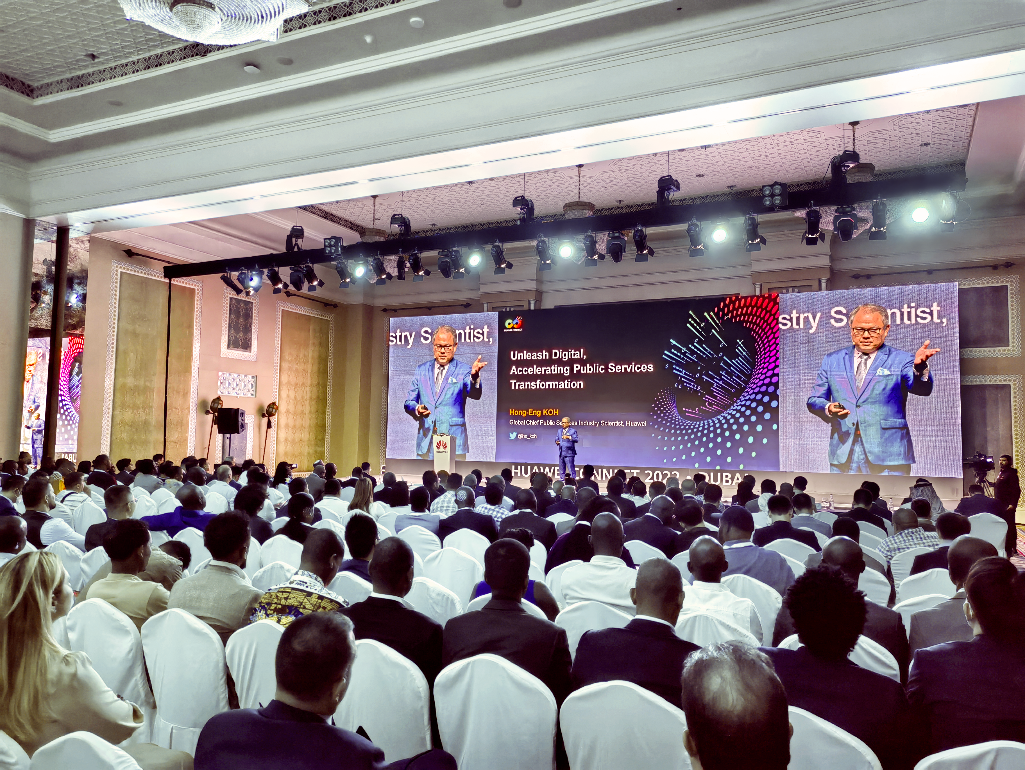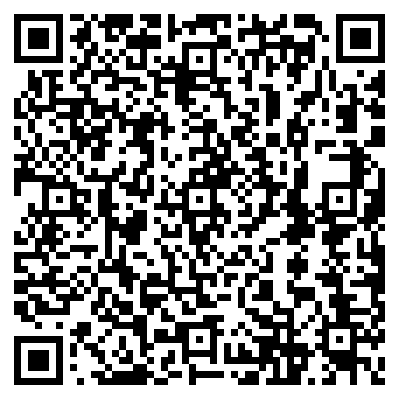This site uses cookies. By continuing to browse the site you are agreeing to our use of cookies. Read our privacy policy>
![]()
This site uses cookies. By continuing to browse the site you are agreeing to our use of cookies. Read our privacy policy>
![]()
Produits, solutions et services pour les entreprises
[Dubai, UAE, October 12, 2022] At HUAWEI CONNECT 2022 Dubai, Huawei officially released the Public Services Digital Infrastructure White Paper, which looks at the future of digitalization in the public sector. In his speech, Mr. Hong-Eng KOH, Chief Scientist of Huawei Global Public Sector, explained that the white paper proposes a "One Cloud, One Network" approach when building national digital infrastructure, assuring streamlining and centralization. During the session, Huawei also showcased an industry best practice, sharing how Cameroon's Social Security Bureau improved its social security services through digitalization.

Hong-Eng KOH, Chief Scientist of Huawei Global Public Sector, released the Public Services Digital Infrastructure White Paper
Currently governments are prioritizing digital infrastructure construction in their national strategies. This prompted Huawei to prepare and publish the Public Services Digital Infrastructure White Paper, which looks closely at the what, why, and how of digital infrastructure for government digitalization. The paper shares global best practices and explains the key infrastructure elements to guide successful implementation.
Mr. KOH said: "Without data we cannot have digital transformation. Data is the new crude oil, and we need data interaction and connectivity just like oil drills and pipes. Cloud and AI are the 'oil refinery and catalyst' for data to produce innovative services for digital transformation. National digital transformation requires public services digital infrastructure: networks, cloud, and AI."
In essence, public services digital infrastructure covers both cloud computing and networks. These provide computing support and high-speed networks for inclusive digital services and converged government administration, fueling the digital transformation of public services.
Huawei worked with CNPS, Cameroon's national social security bureau, to officially launch an online showcase that integrates ICTs such as disaster recovery and active-active data center, microwave network, private cloud, and Wi-Fi 6. The platform covers a wide range of scenarios, including service information management, online and offline service handling, and remote office. This is a critical milestone in CNPS' digital transformation and a replicable example for the industry to follow.
Strategically, the digital transformation of CNPS is crucial piece for Cameroon's government. Noël Alain Olivier Mekulu Mvondo Akame, General Manager of CNPS, explained CNPS' vision to become a modern social security enterprise, using digitalization to improve public government services.
So far, CNPS has achieved remarkable results. It has built an active-active data center architecture to ensure database stability and reliability. Its microwave network interconnection has improved network efficiency, increasing bandwidth from 4 Mbit/s to 50 Mbit/s and reducing service costs by US$30,000 a month. Wi-Fi 6 covers the entire CNPS work area to boost service processing efficiency. For example, family allowance files can now be processed in just 30 minutes. Plus, the cloud desktop and OA system enable cloud-based office and improve data asset security.
ICT infrastructure for public service is one of Huawei's core areas of business. At HUAWEI CONNECT 2022 Dubai, Huawei highlighted four of its major scenario-based solutions in the public services sector.
• Government: The National Digital Infrastructure solution aims to enhance the foundation and pave the road toward digital transformation. It draws on Huawei's cloud-network synergy capabilities to drive national digital transformation.
• Education: Huawei's Converged Campus Network solution delivers an all-wireless campus, integrated campus network, and all-intelligent O&M for faster digitalization in the education sector. The Smart Classroom solution uses Huawei IdeaHub and together with partners delivers an innovative teaching experience both online and offline. The result is an optimal digital experience for both teachers and students.
• Healthcare: The All-Optical Medical Imaging solution draws on Huawei's E2E ICT capabilities to deliver all-optical hospitals, active-active data centers, and eViewer. This solution helps doctors read medical images within minutes and treat patients with higher quality and efficiency.
• Emergency response: The Huawei Smart Emergency Response solution provides customers with efficient emergency response services and reliable key communications networks. It uses a range of sub-solutions, including the converged command center, eLTE co-construction, and a shared emergency network for multiple ministries.
